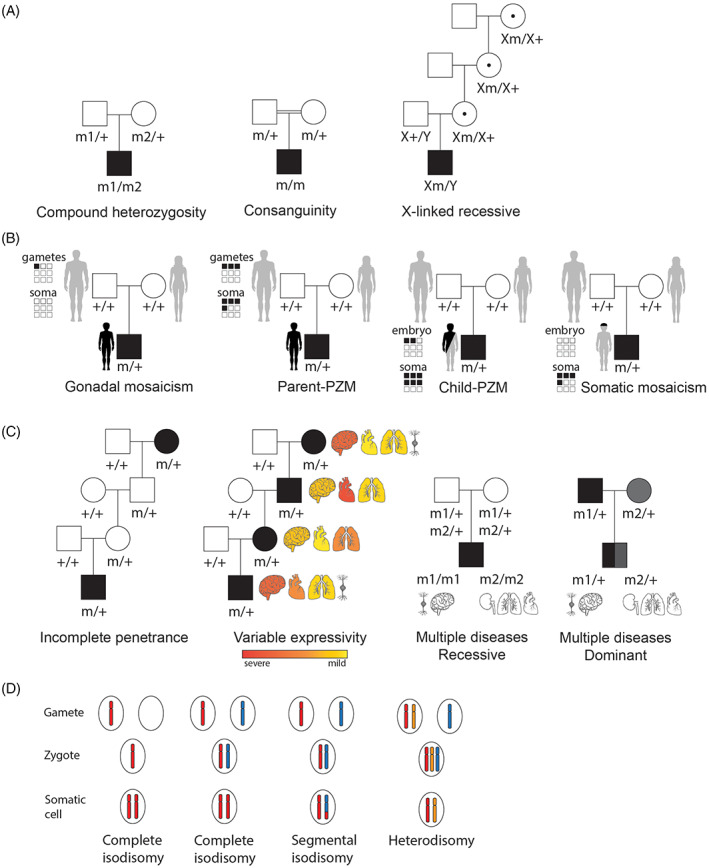FIGURE 2.

Example pedigrees explaining different inheritance patterns. (A) Recessive inheritance models. Compound heterozygosity: the parents each carry a different variant in the same gene. The child receives the variant carrying allele from each parent and is affected. Consanguinity: the parents are related and carry the same heterozygous variant. XL‐recessive inheritance: females are carriers of the pathogenic trait while males are affected. (B) Gonadal mosaicism: variant occurs in gonadal cells of a healthy parent and the pathogenic variant is transmitted to the child. Parent‐post‐zygotic variant (PZM): the PZM occurs during the embryonic stage of the parent resulting in both gametes and somatic cells (soma) to carry the pathogenic variant, which is transmitted to the affected child. Child‐PZM: the variant occurs during embryogenesis of the child and results in multiple mosaic tissues. Somatic mosaicism: the pathogenic variant occurs post‐zygotically at a later stage during development affecting a single or limited number of tissues. (C) Complex inheritance models. Incomplete penetrance: all individuals in the family carry the pathogenic variant, but not all individuals manifest the disease phenotype. Variable expressivity: all individuals in the family carry the pathogenic variant, but the expression of the phenotype is variable. Multiple diseases recessive: both parents are heterozygous carriers of two pathogenic variants that are associated with two distinct disease phenotypes. Both pathogenic variants are transmitted to the child who presents the two distinct disorders. Multiple diseases dominant: both parents manifest a dominant disease and transmit the variant allele to the child who presents two distinct disorders. Pathogenic variant (m). Pathogenic variant on chromosome X (Xm). (D) Uniparental disomy. Complete isodisomy occurs when both copies of the chromosome originate from one parent and none from the other parent. Segmental isodisomy is when only a segment of the chromosome originates from one parent and the rest of the chromosome has two origins, one from mother and one from father. Heterodisomy refers to the situation in which both homologs from one parent are inherited by the child.
